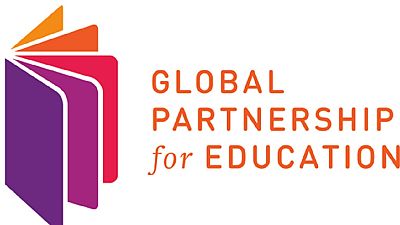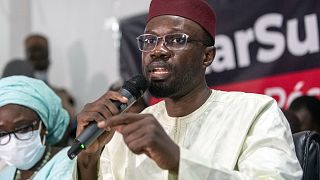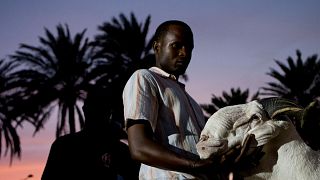Senegal
Less than two months before the Global Partnership for Education’s (GPE) Financing Conference, the GPE Board of Directors agreed on key reforms to further strengthen GPE for future growth, and approved more than US$100 million for education in developing countries.
The meeting opened with an announcement from the European Commission to increase its financial contribution to the GPE Fund totaling 287.5 million euros [about US$350 million] for the 2018-2020 period.
The Financing Conference will be held on February 1-2, 2018, in Dakar, Senegal, and will be co-hosted by Presidents Macky Sall of Senegal and Emmanuel Macron of France, two countries stepping up and calling for more education financing through GPE to support 870 million children with quality education.
The European Commission’s increased contribution in the weeks before the GPE Financing Conference sets the pace for other donors to step up and fully fund GPE to achieve the Sustainable Development Goal for education (SDG 4).
“The last two years have seen a growing momentum for global education. Now is the time for all partners, donors and developing countries alike, to work together and demonstrate commitment and financing to ensure that the world’s children get an education and the right skills for the 21st century,” said Julia Gillard, Board Chair, Global Partnership for Education.
He added that Investment in education could be a catalyst to accelerate progress across priorities from economic development to peace and security.
GPE support to countries between 2002 and 2015 has contributed to impressive achievements, including 72 million more children in primary school and 74 percent primary school completion rates for girls compared to 57 percent before.
The upcoming conference will mark a turning point in global education financing and is the first critical step toward ensuring sufficient resources to achieve SDG 4. To deliver on this ambitious agenda, GPE aims to become a USD$2 billion a year operation by 2020, as recommended by the Education Commission.
To reach this goal, GPE is seeking US$3.1 billion in donor contributions for 2018 to 2020. Developing country partners are asked to raise their domestic education spending to 20 percent of their overall budgets.
Recent reports, including the World Bank’s World Development Report, UNESCO’s Global Education Monitoring report and the G7 Taomina Progress Report, all emphasized the centrality of education to sustainable development.
“GPE is responding to the global education crisis with a sharpened business model to deliver results at scale. We are delivering effective assistance to the countries with the greatest needs by improving learning, increasing equity, and strengthening education systems,”said Alice Albright, Chief Executive Officer, Global Partnership for Education.
The Board approved two new grants for Burkina Faso and Zanzibar, totaling US$39.6 million.
The Global Partnership for Education (GPE) works with developing countries to ensure that every child receives a quality basic education, prioritizing the poorest, the most vulnerable and those living in countries affected by fragility or conflict. GPE mobilizes financing for education and supports developing countries to build effective education systems founded on evidence-based planning and policies.














01:23
USAID officially shuts doors, American government announces
01:13
Myanmar earthquake hampers aid efforts amid crisis
03:29
Lesotho registers its discontent with Trump's mocking comments
01:41
US Aid freeze sparks warnings from Ethiopian rights leaders
00:51
Judge halts Trump’s effort to dismantle USAID
01:57
Women entrepreneurs face financing hurdles in agriculture, FAO program offers solutions